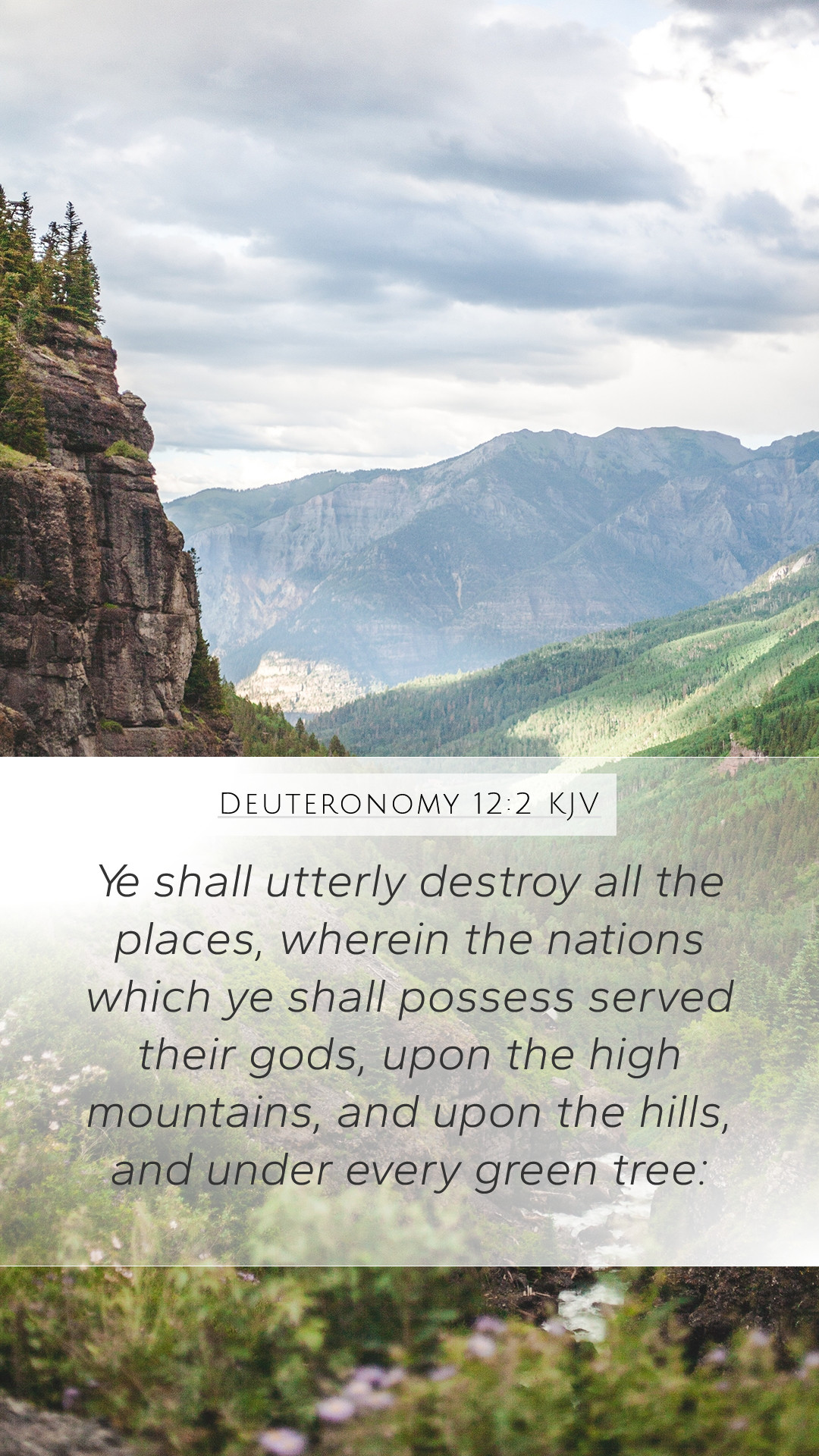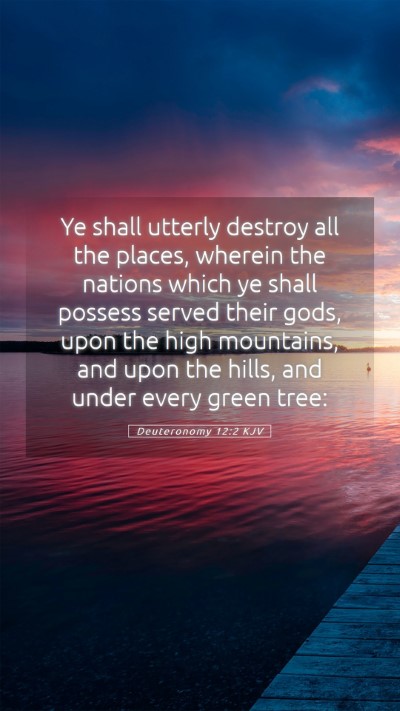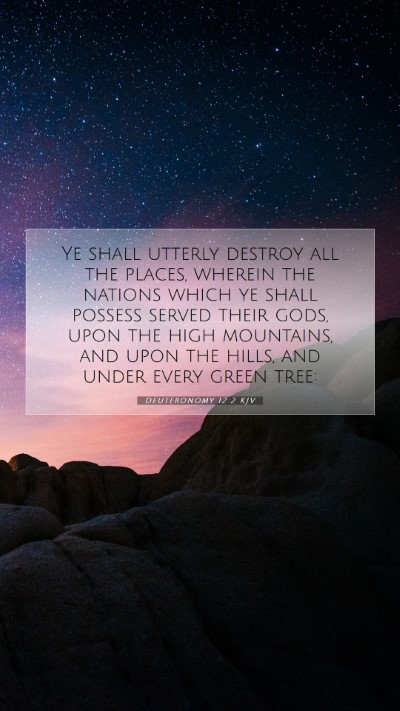Bible Verse Interpretation of Deuteronomy 12:2
Verse: "You shall destroy all the places where the nations whom you shall dispossess served their gods, on the high mountains and on the hills and under every green tree." (Deuteronomy 12:2)
Context and Background
The book of Deuteronomy serves as a farewell address by Moses to the Israelites as they are about to enter the Promised Land. This verse is part of a larger discourse that stresses the importance of worshiping God exclusively and removing idolatrous practices from the land.
Summary of Insights
The command to destroy places of worship dedicated to other gods reflects the overarching theme of loyalty to Yahweh alone. To understand this verse, we must consider various interpretations and commentaries that illuminate its meaning.
-
Matthew Henry's Commentary:
Henry emphasizes the necessity of purging the land of idolatry. He notes that these sites represent temptation and potential corruption for the Israelites. By removing them, God aims to protect His people from falling into the sinful practices of the surrounding nations.
-
Albert Barnes' Notes:
Barnes discusses the historical context, explaining that the high places were often sites of pagan worship. He points out that the Israelites were to eradicate these practices to maintain their unique identity and relationship with God. This command serves not only as a guideline for worship but also as a call to sanctification and purity in their new land.
-
Adam Clarke's Commentary:
Clarke focuses on the geographical implications of the command. He notes that the mentioned high places and hills were locations of significant visibility and prominence, serving as reminders of the nearby nations' worship practices. Therefore, the destruction of such sites signifies a break from those influences and a commitment to worshiping Yahweh in a manner He prescribes.
Thematic Insights
Several key themes emerge from the analysis of Deuteronomy 12:2:
- Exclusivity of Worship: The command highlights the importance of worshiping the one true God and avoiding the corrupting influences of other religious practices.
- Spiritual Purity: The destruction of pagan sites is a physical representation of the Israelites' need to maintain spiritual and moral purity in alignment with God’s commandments.
- Identity and Separation: The verse also speaks to the identity of the Israelites as a chosen people. By removing foreign influences, they can better fulfill their role as God’s representatives in the world.
Application to Life
The modern application of Deuteronomy 12:2 challenges individuals and communities to evaluate their spiritual environments. It encourages discernment regarding influences that may lead them away from their devotion to God. This could encompass materialism, secular ideologies, or even harmful practices disguised as acceptable.
Cross References
This verse relates to several other passages that further elaborate on the theme of idolatry and exclusive worship:
- Exodus 34:13 - "But you shall destroy their altars, break their sacred pillars, and cut down their wooden images."
- Numbers 33:52 - "Then you shall drive out all the inhabitants of the land from before you."
- 2 Kings 23:4-5 - "And the king commanded Hilkiah the high priest..." which discusses the removal of idols from the temple and land.
Conclusion
In summary, Deuteronomy 12:2 serves as a powerful directive for the Israelites—and readers today—to remain devoted to God and to eliminate any spiritual distractions that threaten their faith. Through careful study of this passage, believers can gain profound insights into the nature of worship, holiness, and their identity as followers of God.


